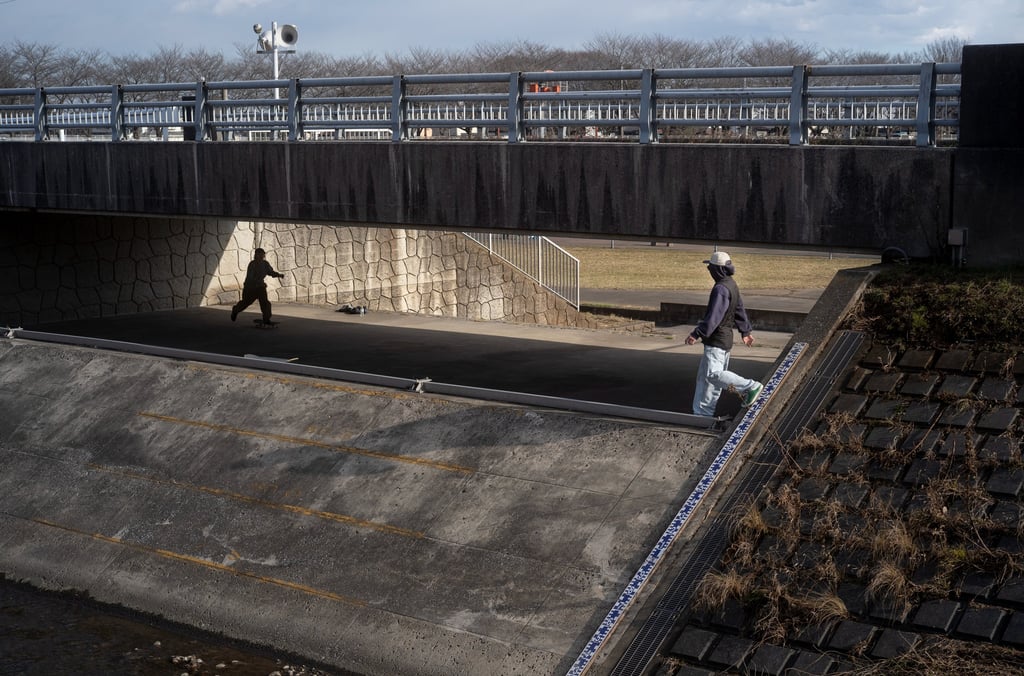Preventing Property Damage with Timely Seawall Inspections
Protect your waterfront home with timely seawall inspections in Fort Lauderdale. Learn how inspections prevent damage and save on repair costs.
SEAWALL INSPECTION
11/8/20255 min read


Seawall Inspection
Living on the water in Fort Lauderdale offers a lifestyle like no other. From sunrise reflections over the canals to cool ocean breezes, waterfront living brings beauty and tranquility every day. Yet, behind this peaceful view lies a constant challenge: protecting your property from the power of the water itself.
A seawall is the unsung hero of every waterfront property. It stands between your land and the relentless forces of tides, waves, and erosion. Over time, however, even the most well-built wall begins to show signs of wear. Without proper monitoring and maintenance, small cracks or shifts can lead to costly structural issues and property damage.
That’s where a seawall inspection in Fort Lauderdale becomes essential. Regular inspections allow homeowners to identify minor concerns before they turn into major problems. With the right professionals—experienced seawall builders and contractors—you can prevent expensive damage, ensure long-term property protection, and save money in the process.
Understanding the Role of a Seawall
A seawall serves as your first line of defense against erosion, tidal surges, and fluctuating water levels. It prevents soil loss, protects your landscaping, and stabilizes the foundation of your home or business. Without this barrier, your property could be vulnerable to flooding, foundation instability, and irreversible land erosion.
However, seawalls are constantly under pressure. They face daily exposure to saltwater, sunlight, heavy rainfall, and wave action. These natural forces slowly degrade materials such as concrete, steel, or vinyl. Over time, joints can weaken, drainage systems can clog, and foundations can shift—compromising the wall’s effectiveness.
That’s why timely inspections are crucial. They help detect early signs of deterioration, allowing for targeted repairs and efficient maintenance before the structure fails.
The Importance of Timely Inspections
Regular inspections are more than just a maintenance task—they are a form of damage prevention and property protection. A timely inspection ensures that every part of your seawall remains functional, strong, and ready to withstand coastal conditions.
Here’s why inspections are so important:
Early Detection of Problems: Small cracks or leaks may seem insignificant, but they can quickly worsen under water pressure. Routine assessments identify these early.
Prevention of Structural Failure: Detecting leaning or bowing sections early helps prevent total collapse.
Cost Savings: Addressing minor repairs is far less expensive than full-scale reconstruction.
Extended Lifespan: Regular maintenance extends the service life of the wall and reduces the need for replacement.
Peace of Mind: Knowing your property is protected allows you to enjoy your waterfront lifestyle worry-free.
A timely seawall inspection ensures your investment remains secure—especially in regions like Fort Lauderdale, where weather and tides can change rapidly.
What Happens During a Seawall Inspection
A thorough inspection is typically performed by an experienced sea wall contractor who understands local conditions and structural requirements. Here’s what a professional evaluation usually includes:
Visual Surface Inspection: The contractor examines the wall for visible cracks, discoloration, and corrosion.
Structural Alignment Check: They assess whether the wall is leaning or bulging, which can indicate pressure buildup or soil loss.
Drainage Review: Proper drainage behind the wall is vital to relieve hydrostatic pressure. Blocked or damaged weep holes can create significant strain.
Foundation and Pilings: If possible, underwater inspections are conducted to ensure the foundation and pilings are stable.
Surrounding Soil Condition: Erosion behind or around the seawall can be a sign that the barrier is no longer performing effectively.
After the inspection, the contractor provides a detailed report outlining the current condition, repair recommendations, and a maintenance timeline.
Preventing Property Damage Before It Happens
Waterfront property owners often underestimate how quickly small issues can escalate. A simple crack may lead to soil erosion, which in turn can destabilize the ground beneath your home. Once the foundation begins to shift, repairs become far more complex and costly.
By scheduling regular inspections and addressing issues promptly, you can:
Prevent soil washout that leads to property sinking
Stop cracks from spreading due to water pressure
Maintain strong drainage to prevent wall displacement
Avoid sudden failures during high tides or storms
In essence, an inspection is your early warning system—helping you maintain full control over your property’s safety and stability.
The Cost Savings of Routine Maintenance
Many homeowners hesitate to schedule inspections, assuming they’ll incur unnecessary expenses. In reality, inspections are one of the most effective ways to save money over time.
The cost of a regular inspection is minimal compared to major repairs or full seawall construction. Replacing an entire wall can cost tens of thousands of dollars, while minor patching and reinforcement are much more affordable.
Routine checks also help seawall contractors plan small, strategic repairs that prevent large-scale deterioration. These small steps ultimately protect your property’s value and help you avoid financial surprises.
Regular upkeep not only ensures damage prevention—it delivers long-term cost savings by reducing emergency repair expenses and extending your seawall’s lifespan.
Frequently Asked Questions
1. How often should I schedule a seawall inspection?
Most experts recommend at least one inspection per year, plus additional checks after storms or hurricanes to assess potential damage.
2. What are the warning signs of seawall damage?
Cracks, leaning walls, soil erosion, and rust stains on metal components are early indicators that your seawall may need attention.
3. Can I inspect my seawall myself?
You can perform basic visual checks, but professional contractors use specialized tools to assess structural strength and underwater foundations safely.
4. How much does a typical seawall inspection cost?
Costs vary based on property size and access, but routine inspections are affordable and far less expensive than structural repairs.
5. When should I consider full replacement instead of repair?
If your seawall shows severe leaning, crumbling sections, or widespread foundation damage, replacement may be necessary for long-term property protection.
Search
Is your seawall secure?
Don't wait for a small problem to become a disaster. Get a professional evaluation.
Choosing the Right Contractor
Selecting an experienced professional is key to getting the most out of your inspection. A qualified contractor brings expertise, precision, and local knowledge that generic services simply can’t match.
When choosing among seawall builders in Fort Lauderdale, look for:
Local Experience: Contractors familiar with Florida’s coastal climate understand the specific challenges seawalls face here.
Reputation: Ask for references and look for positive reviews from local property owners.
Comprehensive Services: A contractor who offers inspection, repair, and construction ensures continuity of care.
Transparency: Detailed inspection reports and clear pricing protect you from unnecessary costs.
A professional contractor doesn’t just fix issues—they help you plan ahead, ensuring your seawall remains strong and reliable through every season.
Seawall Maintenance and Inspection Schedule
A proper inspection and maintenance schedule should be part of every waterfront property owner’s routine. The frequency can depend on factors like wall material, age, and exposure to weather conditions, but as a general rule:
Annual inspections are recommended for all seawalls.
Post-storm inspections should follow any hurricanes or severe weather.
After major repairs or renovations, a follow-up inspection ensures everything remains stable.
Following this schedule ensures continuous property protection and reinforces your seawall’s performance year after year.
Long-Term Property Protection and Value
In addition to preventing immediate damage, regular inspections play a vital role in preserving property value. Potential buyers in Fort Lauderdale value homes with well-maintained seawalls, knowing that the property is secure and less likely to face future issues.
Consistent monitoring also enhances the aesthetic appeal of your waterfront property. A clean, sturdy seawall contributes to a more polished landscape, improving both appearance and function.
Whether your property is residential or commercial, the benefits of regular seawall inspections extend beyond physical protection—they safeguard your financial investment and the enjoyment of your coastal lifestyle.
Conclusion
Your seawall is the foundation of your property’s defense system—protecting your land, home, and investment from the unpredictable forces of nature. Ignoring small issues can lead to expensive and avoidable damage, while regular inspections provide the reassurance that your property remains secure.
By working with experienced seawall contractors and maintaining a proactive inspection schedule, Fort Lauderdale homeowners can prevent damage before it happens. Timely inspections not only ensure safety but also deliver valuable cost savings and peace of mind.
Innovation
Renovating seawalls with modern technology and materials.
Quality
Strength
© 2024. All rights reserved.
